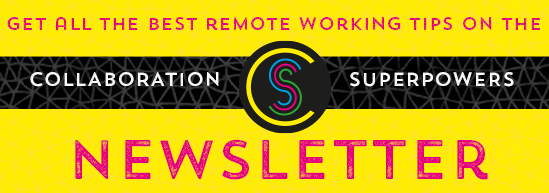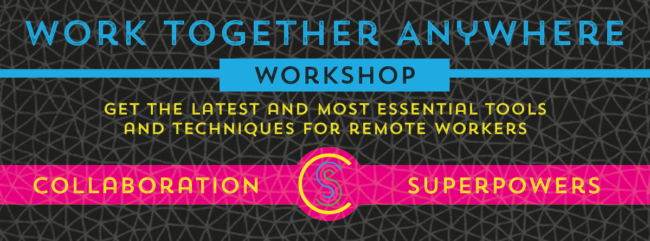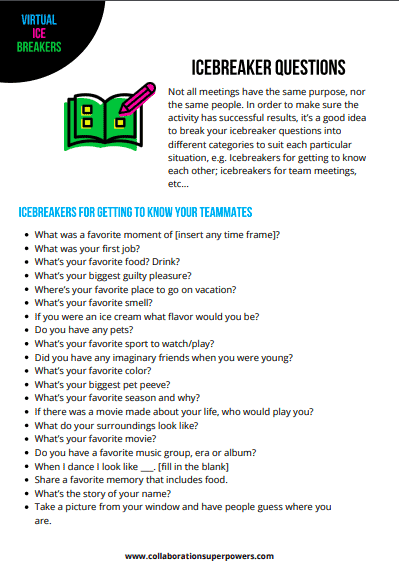Many of us have been working remotely for the past year because of COVID19. But for those of us who were location-free before March 2020, we know one thing that others don’t — these are not normal remote working conditions. The current situation is forced, and we don’t have the freedom and luxuries we had before. Part of the joy of remote working is being able to choose environments that are conducive to productivity. However, due to strict lockdown measures, we no longer have the privilege of working in places that might inspire us, such as coffee shops, libraries, coworking centers, etc. Another major drawback is not being able to have spontaneous social interactions we depend on to stimulate our creativity and regenerate our work enthusiasm.

Loneliness, burnout, and longer hours present very real risks to our health and productivity, and are considered the “downside” to remote work. In order to combat them, we have to make concerted efforts to create structure and a routine that enable us to get our tasks done and preserve a little time for us. Even under the unusual circumstances we’ve been confronted with this year, there are still systems we can put in place to keep our sanity and prevail while working remotely.
Rebecca Seal, author of How To Work Alone And Not Lose Your Mind, knows the downside to remote working all too well. After experiencing burnout firsthand and not having anywhere to turn to for help, she began writing this book 6 years before the global pandemic changed the way we do our work. In a recent interview, she shared her insights with our audience.
(https://www.howtoworkalone.com/)
Subscribe to the Collaboration Superpowers Podcast on iTunes, Stitcher or Spotify.
How to work alone and not lose your mind
HAVE A CONVERSATION WITH YOURSELF. A year in and there are still so many people who are struggling to settle into a constructive routine. Talk to yourself about what you need in terms of breaks, exercise, social interactions, and how you can take advantage of remote work. We may be in the midst of a pandemic but we still have more freedom than we did when we were in the office.
FAVOUR NATURAL LIGHT AND GO OUTSIDE. Staying indoors, especially if you don’t get a lot of natural light can affect your mood and throw off your circadian rhythm. If you can, set up your desk near a big window. It will not only help your body’s natural rhythm in staying awake during the day and sleeping at night, but it will also help you stay mentally fit. Stepping outside and going into nature is also critical to your health and has the power to restore energy levels, which, in turn, will help with productivity.
TRY USING BIOPHILIC DESIGN. Gone are the days of working in a sterile office! Working at home allows you to create an atmosphere that fosters healthy and effective working conditions. Biophilic design is the idea of bringing nature into your home or work environment, and some studies suggest that it may support cognitive function, physical health, and psychological well-being. Alongside getting plenty of natural light, try surrounding your desk with plants, stones, and anything else from the natural world that may trick your mind into thinking your outside.
CREATE A SPACE JUST FOR YOU. A home office is a luxury that not everyone has, but which, it seems, everyone needs. Whether you have an entire room that closes off or you work at the dining room table, it is essential that you have an area of the house that’s just for you and your work. Claiming rights to a small territory in your home will help create boundaries for you and those you live with. It also separates the home from “the office” — once you step into that section you are working — and once you step out you’re at home.
BE YOUR BEST BOSS. Are you being your worst boss or are you treating yourself with compassion and understanding? One of the hardest things about working remotely can be setting work rules for yourself. Taking breaks and a lunch hour should be a requirement, not a reward, yet many remote workers don’t implement these policies. Stepping away from your desk for short intervals and longer breaks boosts productivity, not the opposite. Be sure to treat yourself as you would expect your company to treat you.
SET RULES FOR YOURSELF. Rules may seem tedious, but if you want to reinforce better habits, you have to set them for yourself. What are your working hours? When can you take that first coffee break? Are you allowed to talk about work outside of your working hours? If you want to prevent burnout, you have to troubleshoot the issues that may lead to this before it actually happens. Be as clear and precise as you can when writing these out so you’re less likely to make excuses. Setting rules will ultimately lead to better habits. (Check out our resource packet on habits)
EAT A HEALTHY LUNCH. Good nutrition is one of the keys to a healthy life, and your brain needs fuel to function. Skipping lunch so you can get more working hours in may seem like a good idea but it’s actually counterproductive. If your brain isn’t being nourished, you’ll feel more sluggish, moody, and irritable, which will inhibit your ability to concentrate, thus leading to lower levels of productivity. Take the time to recharge your tank by preparing a nutrient-dense meal at your lunch hour.
CREATE TRANSITIONAL RITUALS. When we live and work in the same place, it can be extremely difficult to “switch off”. Setting yourself up with external cues can help send signals to the brain that allow you to identify when you’re in “work mode” and when you’re in “home mode”. Having a morning ritual such as getting dressed and putting on a little makeup can help you transition into “work mode”, whereas having an evening ritual like throwing a sheet over your desk, or blowing out a candle at the end of the workday can help you move into “home mode” and stay there. You may not even have to implement new practices, you might just have to take note of what you’re already doing.
SET ASIDE “YOU” TIME. In an office, you have to be at your desk from 9 to 5 with no in-between time to do things that bring you joy. The biggest upside to remote work is that you also get to incorporate time in the day for you. This allows you to step out for some fresh air, tinker in the garden, read a chapter of your book in the sun, write in your journal — anything it is that lifts your spirits and snaps you back to yourself, do that. Your well-being is essential to getting the balance right.
Podcast production by Podcast Monster
Graphic design by Alfred Boland
More resources




